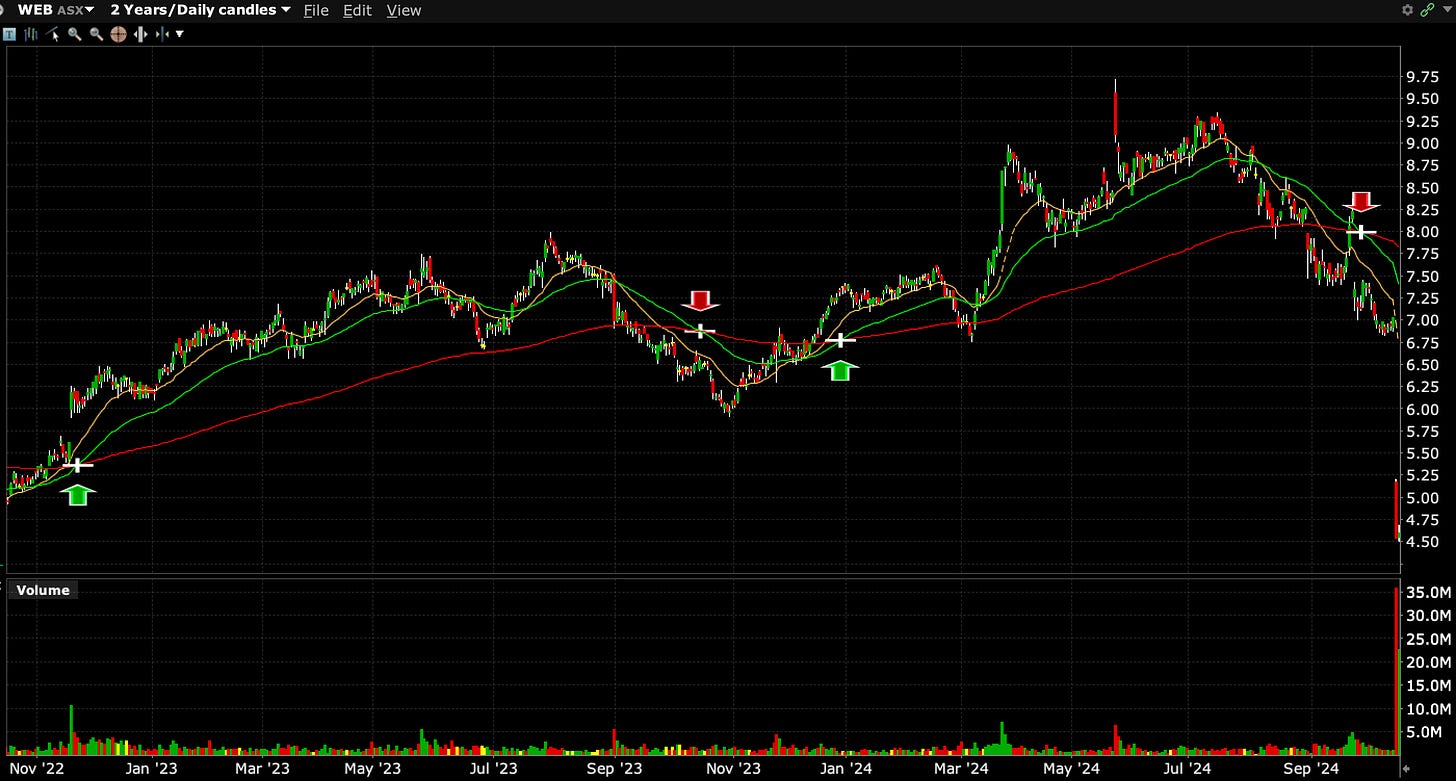Special WebBeds: Event-driven opportunity?
Quick analysis of a leading bed bank (B2B) company after a demerger & profit warning in just 4 weeks
In recent weeks, one of the potentially interesting situations we've been discussing is WebBeds, as a demerger was set to take place (which happened on September 23), separating their B2B and B2C businesses. This situation caught our attention because WebBeds' B2B business is one of the only two relevant competitors for HotelBeds, which was expected to be one of the major IPOs of the year in Spain but has been postponed until 2025.
We ran some quick numbers at the time and shelved the idea, but now, after a 40% drop in its share price over the past three weeks—mainly due to a profit warning issued this past Monday—we believe it’s a good time to take a closer look at WebBeds and decide whether to add it to the portfolio or stay on the sidelines.
Note: This post is primarily an analysis of the economics and the current situation in order to identify or rule out an apparently attractive opportunity. If you want to read more in-depth about the company, Alex has written extensively about it.
Introduction to WebBeds
WebBeds is a B2B hotel bed bank business. For those unfamiliar with the term or the travel industry, let’s try to explain it as follows. Hotel reservations can be made in three different ways:
Directly (30%): Through the hotel’s website, phone, etc. This is obviously the hotels' preferred method since there are no commissions.
Indirectly (60%): Through a B2C platform that has a contract to market the hotel’s rooms, like Booking or Expedia. (The hotel chain has a contract and pays a commission.)
Through bed banks (10%): This is where Webbeds comes in, although the top two market players are Expedia (B2B) and HotelBeds (the Palma de Mallorca-based company we mentioned earlier). The clients of bed banks are travel agencies, tour operators, airlines, etc. The key difference here is that the hotel has a contract with the bed bank, but not with the rest (the hotel pays commissions to Webbeds, which distributes them to the rest).
Bed banks serve the crucial function of maximizing hotel occupancy and also important to consider, they can do that by offering rooms at a different price than the corporate website or B2C platforms (hotels are interested in being fully booked, even if that means selling the last remaining rooms at a lower price. However, this creates a conflict if they do it through their main website or a B2C partner with whom they have an agreement).





